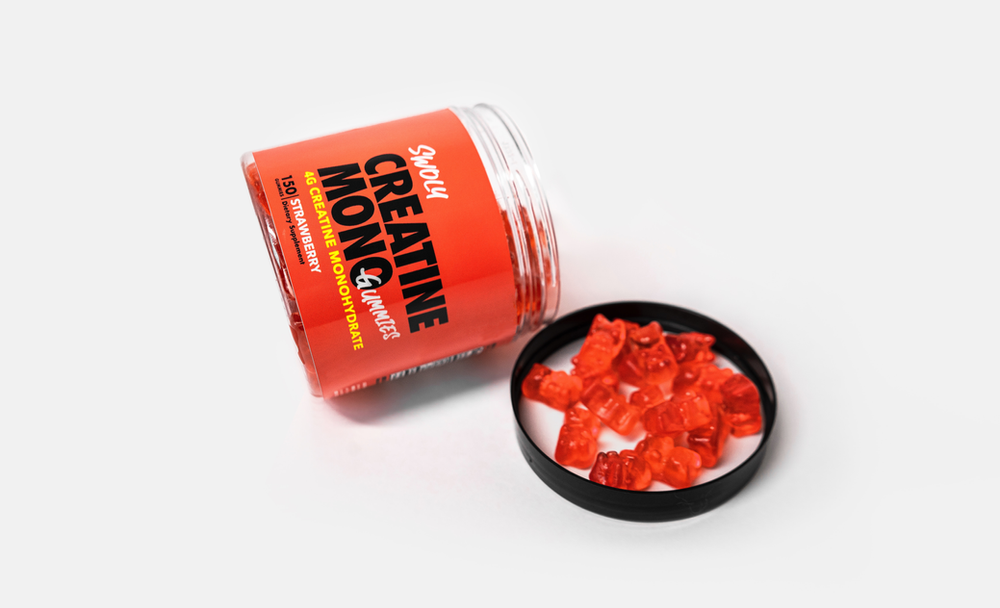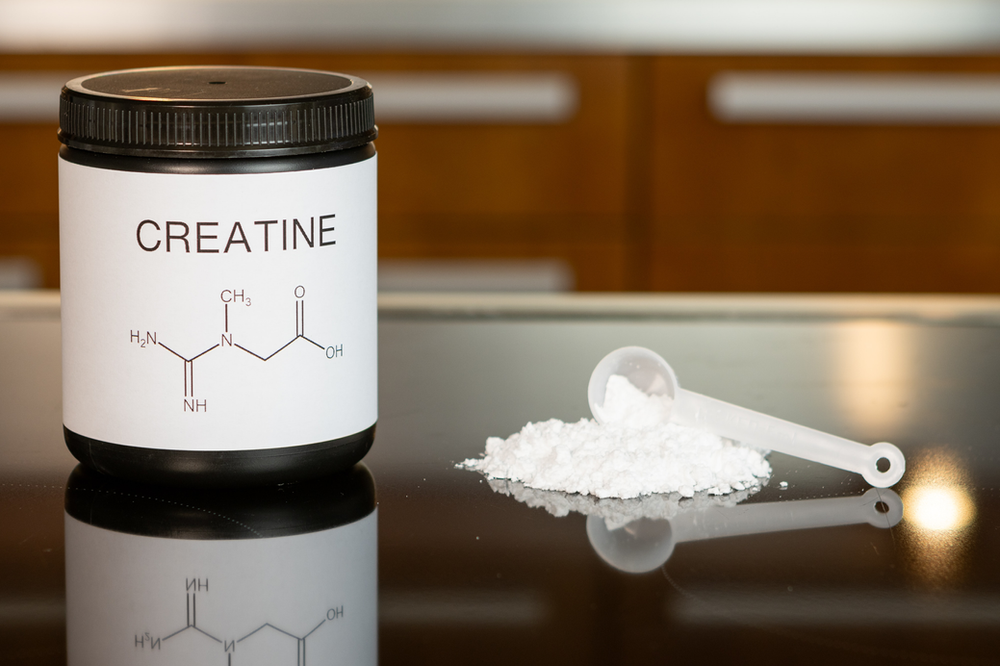Fasting, a term gaining popularity, refers to the practice of abstaining from food for a specific period. People have shown a growing interest in various fasting methods, with one of the most talked-about being intermittent fasting.
Simultaneously, there has been a surge in the use of creatine supplementation, a substance believed to enhance athletic performance and muscle growth.
Today, we aim to unravel the mysteries surrounding the relationship between fasting and creatine supplementation, shedding light on whether creatine disrupts the fasting process.
To begin our exploration, let's first understand what fasting is and why it has become a trending topic in health and wellness discussions.
Understanding Fasting
Fasting comes in various forms, each with its own unique approach to abstaining from food. Exploring these types and understanding the physiological changes that occur during fasting is crucial for grasping its impact on the body.
Different Types of Fasting
- Intermittent Fasting: Intermittent fasting involves cycling between periods of eating and fasting. Common methods include the 16/8 method, where one fasts for 16 hours and eats during an 8-hour window, and the 5:2 method, which involves eating normally for five days and restricting calorie intake for two non-consecutive days.
- Extended Fasting: Extended fasting goes beyond the typical intermittent fasting windows, often lasting for more than 24 hours.
This approach may include fasting for several days or even weeks. While less common, some individuals choose this method for its potential health benefits.
Physiological Changes During Fasting
Fasting triggers various physiological changes in the body, influencing key processes that contribute to overall health.
- Insulin Levels: Fasting leads to a decrease in insulin levels. Insulin, a hormone released when we eat, facilitates the absorption of glucose. Lower insulin levels during fasting encourage the body to use stored energy, promoting fat breakdown for fuel.
- Autophagy: Autophagy, a cellular recycling process, is heightened during fasting.
In this process, cells remove damaged components, contributing to cellular maintenance and renewal. Autophagy is often associated with improved longevity and a reduction in the risk of certain diseases.
- Cellular Repair Processes: Fasting stimulates cellular repair mechanisms. The body allocates energy towards repairing cells and tissues during fasting periods. This includes the removal of dysfunctional cells and the production of new, healthy cells, promoting overall tissue regeneration.
Understanding these aspects of fasting sets the stage for examining how creatine supplementation may interact with these physiological processes during periods of abstaining from food.
The Role of Creatine
Creatine, a naturally occurring compound in the body, plays a crucial role in various physiological processes.
Understanding its sources and benefits is essential for evaluating its potential impact during fasting.
Overview of Creatine
- Natural Occurrence in the Body: Creatine is a substance produced naturally in the body, primarily in the kidneys and liver. It is then transported to muscles through the bloodstream, where it plays a vital role in energy production during short bursts of intense physical activity.
- External Sources Through Supplementation: In addition to its endogenous production, creatine can be obtained from external sources, such as dietary supplements. Creatine supplements are popular among athletes and fitness enthusiasts to enhance performance and support muscle-related goals.
Creatine's Benefits
- Improved Athletic Performance: Creatine is renowned for its ability to enhance athletic performance, particularly in high-intensity, short-duration activities. By increasing the availability of adenosine triphosphate (ATP), the primary energy currency of cells, creatine aids in quick energy replenishment during activities like weightlifting and sprinting.
- Muscle Growth and Strength: Creatine supplementation is linked to increased muscle mass and strength.
It promotes water retention within muscle cells, leading to a volumizing effect. Additionally, creatine may stimulate protein synthesis, contributing to muscle growth over time.
- Cognitive Benefits: Beyond its impact on physical performance, creatine has shown potential cognitive benefits. Research suggests that creatine may enhance cognitive functions such as memory, attention, and reasoning. These cognitive effects are attributed to the role creatine plays in supporting energy-demanding processes in the brain.
Understanding creatine's dual role as an internally produced compound and a supplement with performance and cognitive benefits is crucial for assessing its compatibility with fasting and its potential influence on the body's processes during abstention from food.
Breaking Down Creatine Supplementation during Fasting
Exploring the intricacies of incorporating creatine supplementation into a fasting routine involves considering factors such as caloric content, insulin response, and effects on autophagy and cellular repair.
Caloric Content of Creatine
Creatine supplementation often comes in various forms, including powders and capsules.
While creatine itself is low in calories, it's essential to acknowledge any additional components in certain formulations.
Some products may contain additives or sugars that contribute to overall caloric intake. Understanding the complete nutritional profile is crucial for those seeking to maintain a strict fast.
Insulin Response to Creatine
Insulin, a hormone responsible for regulating blood sugar, is influenced by dietary intake. While creatine itself doesn't significantly impact insulin levels, some formulations or accompanying substances may elicit a response.
It's important to assess the overall insulin impact, especially for individuals practicing fasting to harness specific physiological benefits related to insulin sensitivity.
Impact on Autophagy and Cellular Repair
Fasting triggers autophagy, a process crucial for cellular maintenance and repair. Creatine's potential influence on autophagy is an area of interest.
While there is limited direct evidence linking creatine supplementation to autophagy, considering its impact on insulin and cellular energy processes is essential.
Balancing the benefits of creatine for physical performance with potential effects on autophagy during fasting requires careful consideration.
As we navigate the nuanced relationship between creatine supplementation and fasting, understanding these aspects helps individuals make informed decisions tailored to their health and fitness goals.
Balancing the advantages of creatine with the principles of fasting requires a holistic approach, taking into account both short-term and long-term effects on the body.
Addressing Common Misconceptions
As we navigate the intersection of creatine supplementation and fasting, it's essential to sift through the sea of information and address prevalent misconceptions. By debunking myths and relying on scientific evidence, we can foster a clearer understanding of this nuanced relationship.
Misinformation Surrounding Creatine and Fasting
- Caloric Misconceptions: There's a common belief that creatine supplementation inevitably breaks a fast due to its caloric content. Addressing this misconception involves a nuanced examination of the overall impact, considering the minimal caloric contribution of creatine itself.
- Interference with Autophagy: Some misconceptions suggest that creatine may interfere with autophagy, a vital cellular process triggered during fasting. Clarifying the existing scientific evidence is crucial to dispel unfounded concerns and provide a balanced perspective.
Debunking Myths with Scientific Evidence
- Insulin Response Clarification: Misconceptions often arise regarding creatine's impact on insulin levels during fasting.
Scientific studies can help clarify whether creatine triggers a significant insulin response and, if so, whether it contradicts the desired physiological effects of fasting.
- Evidence on Cellular Repair: Addressing the notion that creatine may hinder cellular repair processes involves examining studies that delve into the intricate mechanisms of autophagy and other repair mechanisms. Scientific evidence helps differentiate between speculation and established facts.
By systematically dismantling common misconceptions and relying on robust scientific evidence, we can cultivate a more accurate understanding of the dynamics between creatine supplementation and fasting.
Conclusion
So, to answer the question does creatine break a fast? - in short - No, creatine itself, being low in calories and not affecting insulin levels significantly, is generally considered not to break a fast. However, individuals should be cautious about the complete nutritional profile of creatine supplements, as some may contain additives or sugars that contribute to caloric intake.
It's advisable to consult with a healthcare professional for personalized advice based on individual health goals.
Recap of Key Points
- Fasting Diversity: We explored different fasting methods, ranging from intermittent fasting to extended fasting, each with distinct physiological impacts.
- Creatine's Dual Nature: Creatine, both naturally produced in the body and supplemented externally, plays a multifaceted role in supporting athletic performance, muscle growth, and cognitive function.
- Balancing Act: Understanding the caloric content of creatine, its potential influence on insulin response, and its impact on cellular repair processes provides a foundation for evaluating its compatibility with fasting.
Acknowledging the Nuances
- Individual Variability: Recognizing that individual responses to creatine and fasting can vary is crucial. Factors such as body composition, metabolic rate, and personal goals contribute to the nuanced nature of this relationship.
- Scientific Complexity: The intersection of creatine and fasting involves intricate physiological processes. Embracing the complexity encourages a deeper appreciation for the subtleties inherent in health and fitness decisions.
In the world of health and well-being, how you get there is just as important as reaching your goal.
By going over important ideas, understanding the details, and making smart choices based on good information, people can confidently walk their path to being healthy and feeling good.
Original Article












